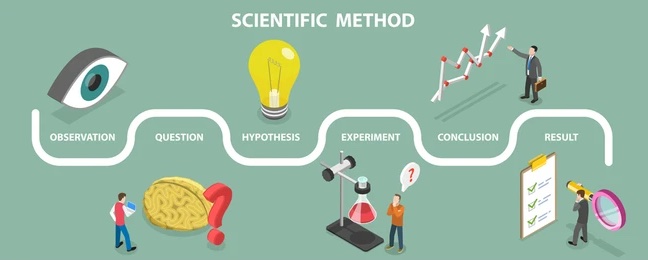California Passes COVID-19 Law banning doctors from offering alternatives to COVID-19 vaccines
By Carolina London
Published: December 6th, 2022 12:30AM PST
(8 minute read)

Assembly Bill 2098 was signed into law by Governor Newsom on September 30, 2022. This new law added section 2270 to the already existing Business and Professions Code relating to the healing arts in California. Currently, California State Laws grant licensure and regulation of physicians and surgeons to the Medical Board of California and the Osteopathic Medical Board of California. This means that these two boards have licensure and regulatory powers over California physicians and surgeons. As such, the current law requires that these two boards take action against any licensed physicians and surgeons who are charged with unprofessional conduct. Today, AB 2098 adds the dissemination of misinformation or disinformation regarding COVID-19 as unprofessional conduct.
So Many Questions
What is misinformation, and how is it different from disinformation? What is considered COVID-19 misinformation? What, if any, laws exist to protect patients against malicious doctors? Are doctors charged with unprofessional conduct when they advise alternative medical treatments for cancer or autoimmune diseases? Is this new law about stopping the spread of disinformation and misinformation? Or is this law about something else? Let’s take a look at each one of these questions to better understand the logic behind why California lawmakers would choose to pass this law. In addition, we will question the fundamental theory behind the scientific method and how this law may alter physicians' and surgeons' abilities to treat their patients.
Misinformation, Disinformation, History, & Law
What is misinformation, and how is it different from disinformation? A quick search online defined disinformation as the deliberate act of providing misleading information in order to confuse or mislead a person. This definition makes disinformation sound like malicious behavior that requires a conscious intent to mislead. Thus, a doctor would have to consciously intend to mislead their patient with information that they knew to be misleading or outright false. Alright, fair enough. Now, the California Legislator decided to define disinformation in AB 2098 as "misinformation that the licensee deliberately disseminated with malicious intent or an intent to mislead" (California Legislature). These two definitions are just about the same and it seems clear that the goal of AB 2098 is to prevent the dissemination of misinformation in the context of working as a licensed physician or surgeon. This law definitely makes sense on the surface. Why? Because no one would want a physician or surgeon that would willingly mislead them and provide them with false information as it could result in injury or even worse death. So, it makes sense that the bill was signed into law as it sounds like the right thing to do. The main objective of Ab 2098 is to protect patients from doctors looking to maliciously mislead their patients. Who wouldn't support that? However, nothing is as it seems and we need to peel back the layers to reveal what this law really is about so hold your horses and listen up.
To begin with, I am not sure under what circumstances the dissemination of misinformation and disinformation would happen in a healthcare setting other than with a doctor who is getting kickbacks, meaning compensation, for referring a specific drug or device to their patients. What other incentive, outside of maybe a personal vendetta or illness, would a physician or surgeon have to willingly disseminate disinformation or misinformation to their patients? I am not sure, but clearly, law makers in California believed doctors were doing this so much that they needed a state law to combat this issue. Well, sort of, because this law doesn’t really prevent misinformation and disinformation all across the board in a medical setting. Rather, the focus is actually on COVID-19, and more specifically COVID-19 vaccines. What is interesting about AB 2098 is the lack of evidence presented by law makers and politicians to support the creation of AB 2098. If the issue was so vast and dangerous in California why haven't we heard about it? How many injuries or deaths have resulted in California from this type of malicious behavior from physicians and surgeons? This alone makes me question the overall need and legitimacy of AB 2098 in California. I am even more curious as to why this law is specifically focusing on COVID-19 and COVID-19 vaccines rather than all misinformation and disinformation? Also, why didn't California law makers just expand on the already existing federal laws that protect patients from this type of behavior? That's right, you’ll be surprised to learn that there are already five laws that prohibit this type of abusive and fraudulent behavior. These laws include the False Claims Act, the Anti-Kickback Statute, the Physician Self-Referral Law, the Exclusion Statute, and the Civil Monetary Penalties Law (HHS), which are U.S. Federal Fraud and Abuse Laws and specifically pertain to fraud and abuse by physicians. A violation of any of these laws could result in the termination of a physician’s state license and could also result in fines and even jail time. So the question remains, what is this law really about?
Let’s take a deeper look at the definition of misinformation and how it is used in AB 2098. Another search online revealed that misinformation is defined simply as incorrect or false information. Thus, misinformation can be considered a type of fraud. Now, in AB 2098, misinformation is defined as "false information that is contradicted by contemporary scientific consensus and contrary to the standard of care" (California Legislature). As you can see, the definition of misinformation in AB 2098 specifically pertains to the regulation of language for the practitioners of the healing arts, which are physicians and surgeons. This is where things begin to get a bit tricky. Let me explain.
AB 2098 states that misinformation is specifically providing "false information that is contradicted by contemporary scientific consensus" and that is also "contrary to the standard of care." Okay, we have a problem here. This definition of misinformation is far too ambiguous even though it may seem more detailed and specific than what we found online. The definition of misinformation in AB 2098 leaves too much room for interpretation. What is considered false information contradicted by contemporary scientific consensus? Is there a list of items that law makers and politicians have agreed upon as COVID-19 misinformation? Or is that left up to the two regulatory medical boards in California? Is that really contemporary scientific consensus or a Californian echo chamber? What about medical peers across the US and around the globe? I guess they don't count in the contemporary scientific consensus. And who decides what is false information that is contradicted by scientific consensus, and when do they decide it is false information and contradictory? What if scientific consensus changes? Can it change under AB 2098? I ask these questions because at one point in time contemporary scientific consensus was to prescribe cigarettes to pregnant mothers (History) as well as radium to all patients because it was considered a cure for just about any ailment and touted for having many health benefits (NRC). As most of you already know, cigarettes and radium were not healthy medicines and the prescription of these so-called "treatments" injured and killed countless people. It doesn't stop there. What about the previous scientific consensus of administering lobotomies for those with mental illnesses that left patients in a vegetative state or dead? Or how about the use of DDT to treat body lice? In fact, studies have shown that there are links between DDT exposure and higher rates of breast cancer, testicular cancer, hypertension, and obesity in both the person exposed to DDT and their children (Scientific America).
Do you need a more modern example of contemporary scientific consensus? Well, you are in luck. There are many examples, and many of these modern examples were once FDA approved drugs and procedures that have left many disabled, infertile, or dead. The first example that comes to mind is Bayer’s Essure. Essure was marketed to women in 2002 as a safe, non-surgical, permanent birth control. Well, it turned out that it was neither safe nor a permanent form of birth control. There were 943 complaints against Essure filed with the FDA, and an additional 1,000 complaints filed in a voluntary reporting system sent to the FDA, which were filed between 2002 and 2013. In response to the filing of these complaints, Dr. Edio Zampaglione, Bayer's US medical doctor, stated in 2014 that the complaints were "consistent with clinical trials and consistent with what the FDA is seeing" adding that "the science needs to guide our understanding. Science points to the fact that Essure is a safe and effective product" (BBC). As the years went on, complaints kept coming in to the FDA, and by December 31, 2021, there were a total of 67,643 complaints, 26 deaths, as well as 4,509 pregnancies, with 2,308 of those pregnancies resulting in infant deaths (FDA). In fact, there have been a total of 39,000 lawsuits against Bayer for its Essure device (Consumer Safety). In 2018, Bayer notified the FDA that it would voluntarily stop selling Essure after December 31, 2018. Bayer collected the last unused Essure devices from the market on December 31, 2019 (FDA-2). However, Essure is currently undergoing surveillance studies with the FDA in order to be brought back to market. Why? I'm guessing you can follow the money on that one. Now, if you've been paying attention, you can begin to see what can go wrong when too much trust and protection is given to medical products and companies over people and their doctors.

AB 2098 & Covid-19 Misinformation
Now that we’ve taken a more comprehensive look at the definition of disinformation and misinformation and how these two words are defined within AB 2098, we can begin to better understand why AB 2098 was signed into law. The basis behind AB 2098 is to protect patients from death or injury as a result of what is considered contrary to the standard of care with specific regard to the dissemination of COVID-19 information, which is considered false or inaccurate within the contemporary scientific community. In other words, AB 2098 is designed to protect patients from doctors or surgeons who knowingly mislead their patients by providing COVID-19 information that is not accepted by the majority in the field of medicine. Once again, on the surface, this sounds like a good deal. However, this actually limits your doctor’s ability to not only treat you but also to advance the field of medicine. Why? Simple, because the study and practice of medicine has always advanced using the same method. That is, the scientific method which requires doctors to experiment and explore treatments with patients and not simply treat patients through some dogmatic acceptance of a singular medicine, procedure, or device.
As we learned earlier, there are both historical and modern examples of medicines, procedures, and devices that were once accepted by contemporary scientific consensus but resulted in thousands of injuries and, in some cases, deaths. As any good doctor will tell you, there is no one-size-fits-all solution. Once you understand more of the history behind contemporary scientific consensus, it is easy to see how AB 2098 could have disastrous results for patients and provide COVID-19 vaccine manufacturers with unnecessary protections. Why? Well, for starters, Section 1(c) of AB 2098 states that "the safety and efficacy of COVID-19 vaccines have been confirmed through evaluation by the federal Food and Drug Administration (FDA) and the vaccines continue to undergo intensive safety monitoring by the CDC" (California Legislature). The issue here is that many drugs and devices that were approved by the FDA were later taken off the market due to an excess of deaths and injuries, like the story of Essure by Bayer. A law like AB 2098 prohibits doctors from advising their patients against the use of COVID-19 vaccines. So then, what is the true purpose behind AB 2098?
Is the purpose of AB 2098 to squash misinformation and protect patients? Not quite, because if that were the case, then the law would not specifically target COVID-19 and COVID-19 vaccines misinformation that is defined by AB 2098 as anything that goes against the contemporary scientific community. Whatever that means, and if AB 2098 were simply to protect patients and prevent injury or death then it would make sense to write a law to prohibit all medical disinformation and misinformation. However, this is not the case with AB 2908, as it focuses only on COVID-19 disinformation and misinformation. This should alarm you as a consumer. Why? Well, because if it was to turn out that the vaccines are detrimental and physicians begin to uncover this then it would be technically illegal for a California physician or surgeon to advise a patient against the use of the vaccine otherwise they would face losing their medical license. This sounds a bit like coercion and not very scientific at all.
Imagine the irony of your doctor providing you with medical information that is considered accurate by the majority of doctors and surgeons but in reality is false. This is the risk that Californians are taking with the passing of AB 2098. Now, imagine a similar law but with regard to some other supposed medical breakthrough such as Essure, DDT, lobotomies, radium, or even cigarettes rather than COVID-19 vaccines. It isn’t easy to imagine such a law because it simply doesn’t make sense to use taxpayer money to create a law that protects an FDA approved medical product made by a corporation. Protecting consumers from malicious doctors across the board makes sense, and there are already a few federal laws on the books to combat this type of behavior. California’s AB 2098 doesn’t seem to help patients, but rather vaccines and their manufacturers. It is a law that masquerades as a new protection for consumers but in actuality is protecting COVID-19 vaccines at all costs while jeopardizing patient healthcare, killing the scientific method, and potentially violating doctors' constitutional right to free speech.
- Sources:
- Bill Text - AB-2098 Physicians and surgeons: unprofessional conduct. (ca.gov)
- https://www.webmd.com/men/news/20080428/cancer-risk-lingers-for-long-banned-ddt
- https://www.scientificamerican.com/article/consequences-of-ddt-exposure-could-last-generations/
- https://www.bbc.com/news/business-27871265
- https://www.fda.gov/medical-devices/implants-and-prosthetics/essure-permanent-birth-control
- https://www.bbc.com/news/stories-55854145
- https://www.fda.gov/news-events/press-announcements/fda-restricts-sale-and-distribution-essure-protect-women-and-require-patients-receive-risk Essure Permanent Birth Control | FDA
- https://www.history.com/news/cigarette-ads-doctors-smoking-endorsement
- https://www.nrc.gov/materials/radium.html
- https://www.seattletimes.com/business/fda-puts-restrictions-on-birth-control-implant-but-no-recall/

